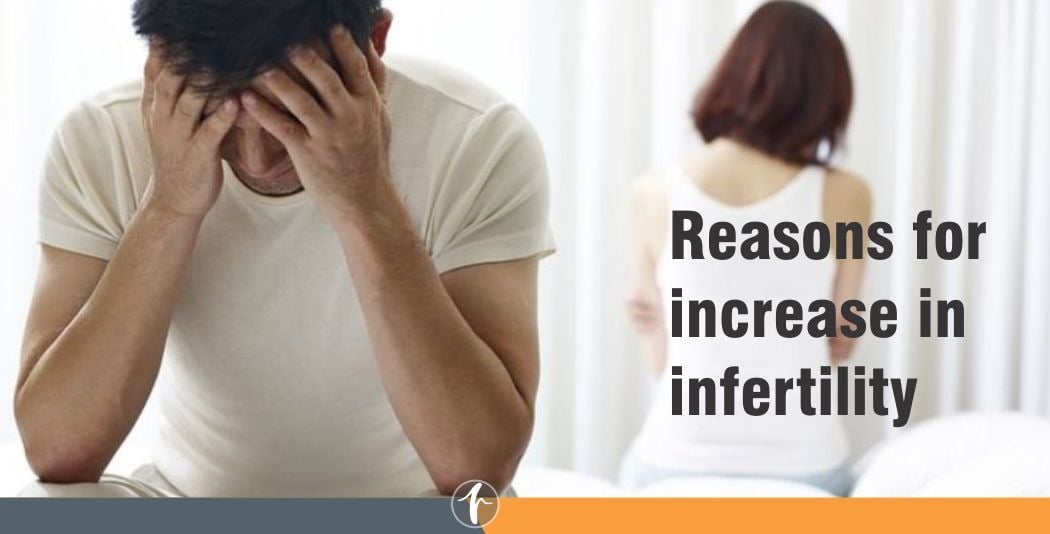Reasons for increase in infertility
September 2, 2020

There has been a steady increase in the incidence of infertility in India. About 20-30 percent rise in the last few years has been recorded. It is neither confined to the cities nor is it more prevalent among women. One of the main factors influencing declining fertility is the phenomenal lifestyle changes that we have seen in a short span of time.
Lifestyle factors that lead to increasing infertility
- Stress
- Sedentary lifestyle
- Obesity
- Unhealthy eating habits
- Pollution
- Lifestyle diseases such as diabetes
In addition to these general factors, there are specific factors that lead to female infertility and male infertility respectively.
Causes of Infertility in women
Age: Today women tend to wait till 30s to start a family. In women fertility decreases with age. Aging also increases the chances of miscarriage. As a woman ages, she has fewer eggs, and the condition of eggs will also not be as healthy as when she was in her 20s. She is also more likely to develop health issues that would hinder conception.
Habits: Smoking, use of recreational drugs and alcohol consumption have increased. These factors decrease fertility contributing to rising infertility.
Stress: Modern woman is under tremendous stress to perform at work and at home. This increased stress and pressure interfere with her fertility to such an extent as to lead to amenorrhoea or absence of periods.
Obesity: Wrong lifestyle choices have led to an increase in obesity and this in turn makes it harder for women to conceive.
Medical conditions: Certain medical conditions such as endometriosis, fibroids etc. can decrease fertility in women.
Causes of Infertility in men
Low sperm count, morphology abnormalities and low motility of sperm are the common causes of infertility in men.
Age: Men too have infertility issues as they age. Couples where the male is over 40 will have more difficulty conceiving than younger couples.
Obesity: Being overweight increases the risk of infertility in men
Habits: Smoking, use of recreational drugs and alcohol consumption are known to increase the risk of infertility in men.
Testosterone exposure: Prescription testosterone injections, implants or topical application for low testosterone, or testosterone or similar medications taken to increase muscle mass can lead to infertility.
Radiation exposure: Exposure to radiation will damage sperm and lead to infertility.
Heat: The temperature of testes is lower than the body temperature. Exposure to high temperatures frequently will affect sperm production leading to infertility.
Medications: Certain medications such as flutamide, cyproterone etc., are injurious to male reproductive health.
Toxins: Chemicals in pesticides, lead, cadmium and mercury lead to infertility in men.
When to consult a doctor for infertility treatment?
Around 45 percent of couples suffer from infertility. The cause can be due to male infertility, female infertility or infertility due to unknown causes. The earlier you diagnose and treat infertility, the better the outcome.
A woman’s chances of conceiving decrease rapidly over her age of 30. Experts say that women younger than 35 years of age should consult a fertility expert if they are unable to conceive after 1 year of trying. Women over 35 should get help after 6 months of trying.
Rela Hospital is one of the best centres for fertility treatment. The most sophisticated equipment and technology in the hands the best fertility experts through personalized treatment and have produced the outstanding results- around 50% – 60% of success in most of our cycles.
If you have any fertility issue contact: Fertility Help line NO: 9384061582








